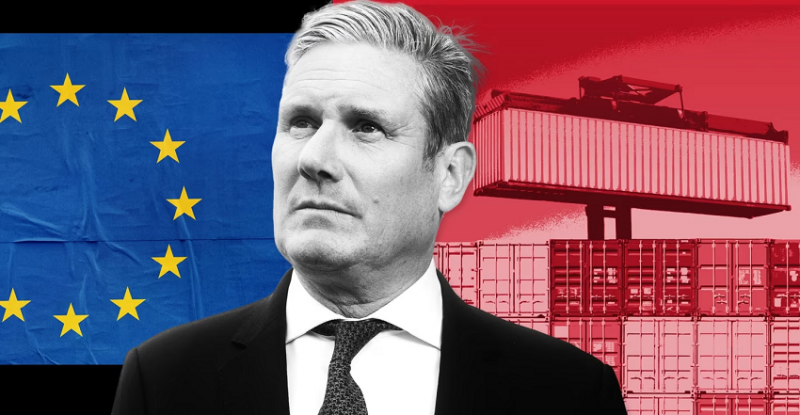
For ten years, the question of leaving the European Union dominated British politics. Today, it hardly comes up, which suits Labour Party leader Keir Starmer just fine. He has been focused on regaining the support of working-class voters, many of whom were drawn to Conservative Boris Johnson's promise to "get Brexit done" five years ago.
Starmer's efforts seem to be paying off, with polls predicting a potential landslide victory that could see him becoming the new Prime Minister by the end of the week. However, if he succeeds, Brexit will inevitably resurface in the political arena.
Starmer's primary goal is to stimulate economic growth. Business leaders argue that this requires reducing the trade barriers created by Brexit, which will likely involve reopening negotiations with the EU.
Britain officially left the EU in January 2020 under Johnson. Labour, determined to move past Brexit, has ruled out rejoining the EU single market or customs union. Nonetheless, they believe it's possible to ease trade barriers with the 27-nation bloc to assist companies, especially smaller ones, that have been struggling with increased costs and paperwork.
Jonathan Reynolds, a Labour MP poised to become business secretary under Starmer, emphasized that while Labour doesn't want to "reopen the wounds of the past," they aim to secure a better deal with the EU. Speaking at an event hosted by the British Chambers of Commerce (BCC), Reynolds highlighted the need for improvements in the current trade agreements.
A survey by accountancy firm Menzies revealed that one-third of British businesses want to revisit the Brexit deal, and one-fifth desire rejoining the single market, citing Brexit-related barriers as a hindrance to international expansion.
One of Labour's early promises is to pursue a veterinary agreement with the EU to reduce border checks on animal products, a significant issue for British farmers and importers. They also aim for mutual recognition of certain professional qualifications and easier access for touring artists.
Labour portrays these as relatively straightforward gains that can be achieved without renegotiating the entire Brexit deal. However, an EU source noted that even these minor steps would require Britain to accept the European Court of Justice (ECJ) for dispute resolution, a contentious point for Brexit supporters who view it as a breach of British sovereignty.
Anand Menon, a politics professor and director of the UK in a Changing Europe think tank, warned that Labour might underestimate the EU's willingness to renegotiate after years of tense relations with British governments. While Britain may want to address technical issues like food regulations, the EU is likely to prioritize broader topics like mobility, facilitating easier living and working conditions in Britain, especially for young people.
Prime Minister Rishi Sunak recently accused Labour of planning to "unravel Brexit" by making the UK subject to ECJ rulings and potentially reintroducing free movement of people. Starmer countered by stating he would reject any EU deal that increases immigration.
Labour's Reynolds expressed optimism about improving trade relations while offering benefits to the EU, acknowledging that while challenging, he sees a negotiation process that could yield positive results.
UK Cabinet Minister Admits to Election Betting, What's Next?
Rishi Sunak Faces Challenges as Conservative Leader Ahead of Elections
UK Election 2024: Labour’s Chances and Conservative Struggles, and More to Watch